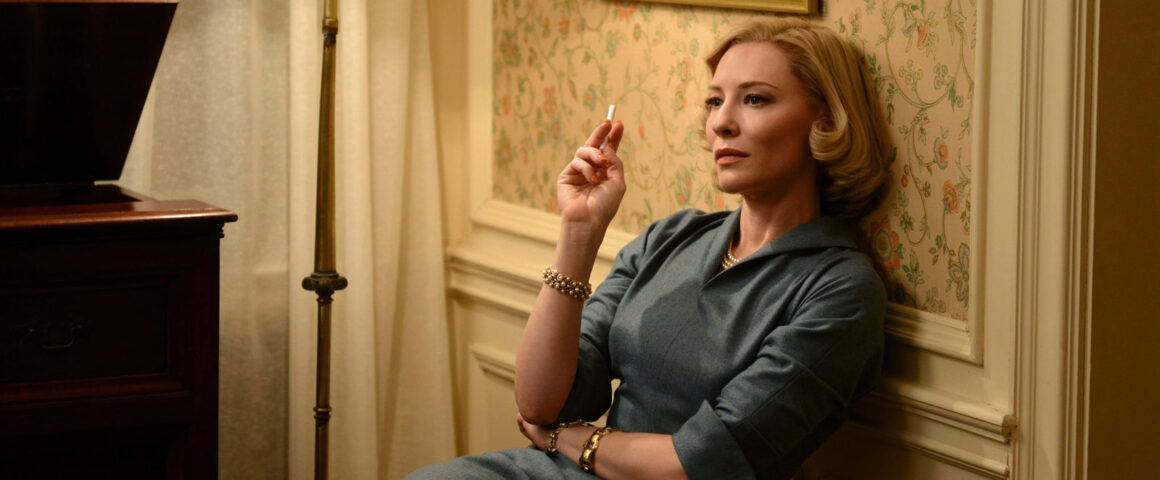“Art thou pale for weariness of climbing heaven and gazing on Earth, wandering companionless?” — Percy Bysshe Shelley, “To The Moon”
A film about loss, loneliness, and love, Todd Haynes’ (“I’m Not There”) Carol is the story of Therese Belivet (Rooney Mara, “The Girl with the Dragon Tattoo”), a nineteen year-old salesgirl whose chance encounter with Carol Aird (Cate Blanchett, “Cinderella”), an older married woman, wealthy and privileged yet seductive and vulnerable, is a seminal moment in her life. Though the film has a lesbian theme, it is more of a coming-of-age depiction of a rudderless young woman seeking her identity who finds herself, like Stephen Gordon in Radclyffe Hall’s 1928 novel, “The Well of Loneliness,” “like a soul that wakes up to find itself wandering, unwanted, between the spheres.”
Based on “The Price of Salt,” a 1952 novel by Patricia Highsmith and adapted for the screen by Phyllis Nagy, the film is set in New York in 1951. Therese works in the toy department of an upscale department store under the watchful eye of her bossy supervisor. She dreams of becoming a photographer, has a boyfriend Richard (Jake Lacy, “Love the Coopers”) who wants to travel and get married but “like a rolling stone with no direction home,” she is rudderless and withdrawn, unable to commit herself to any attainable goal. Things change abruptly, however, when her eyes focus on a blonde-haired vampish-looking woman, elegantly dressed in a fur coat shopping for a gift for her daughter Rindy (Sadie Heim and Kk Heim).
Directed to purchase an expensive model train set, the woman inadvertently or purposefully leaves her gloves on the counter. When Therese mails the gloves back to her, to show her appreciation (or to expand her appreciation), Carol invites the younger woman to lunch, then to her New Jersey mansion where she lives with her husband Harge (Kyle Chandler, “The Wolf of Wall Street”), whom she is in the process of divorcing. At their first meeting at lunch, Carol, a mature and confident woman who has had previous same-sex relationships, in particular with friend Abby Gerhard (Sarah Paulson, “12 Years a Slave”), is struck by the girl’s innocent charm. What a strange girl you are,” she tells her, “flung out of space.”
After an angry exchange with Harge and Therese’s confrontation with her clueless boyfriend, Carol and Therese drive to the Midwest for Christmas just to get away and be by themselves. There is little conversation and feelings are left in unexplored territory, yet their longing for connectedness achieves release in a tender, yet strangely emotionless sex scene. When Carol leaves suddenly after discovering that Harge has taped the proceedings as ammunition in a battle for custody of Rindy, Therese is faced with putting her life back together.
The narrative formulation of Carol is traditional, yet the quality of the film is fine-tuned for maximum impact, an achievement brilliantly realized by cinematographer Edward Lachman, the production designers and set decorators, and especially the superb award-winning performances of Mara and Blanchett. While we learn little about how both experience the alienation that comes with being outside of societal norms, there are no words or outward display of emotion that could help us understand the characters. The air of aloofness that Haynes creates is in essence an air of mystery, haunting and fascinating yet unreachable, the palpable realization that we can never truly know another human being.




'Movie Review: Carol (2015)' has no comments